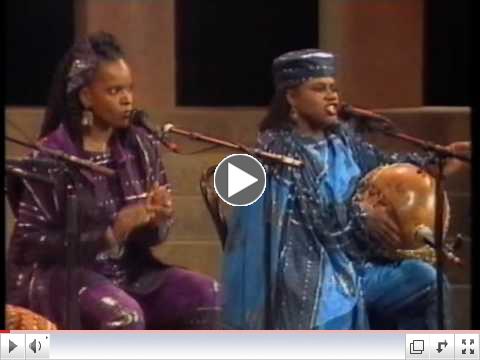 | | Sweet Honey in the Rock - Ella's Song |
|

NEW CCDS Pamphlet
on Climate Change.
|

New CCDS Book Reporting on Vietnam
|
|
Radical Jesus:
A Graphic History of Faith 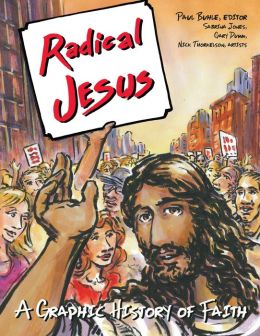 By Paul BuhleHerald Press By Paul BuhleHerald Press
|

Want to Know what CCDS has
been doing...Check it Out!
|
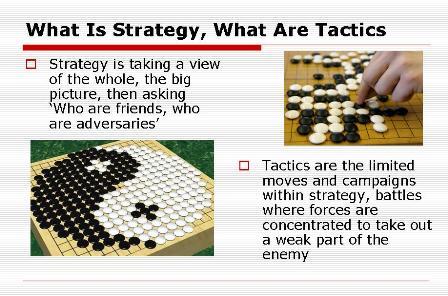 Keep On Keepin' On Keep On Keepin' OnHating the 'Middle Class,' Why Socialists Run in Elections, Strategy and Tactics Slide Slow, Class and Privilege, the Green New Deal ...and other Short Posts on Tumblr by Carl Davidson
|

Edited by Carl Davidson Revolutionary Youth and the New Working Class: The Praxis Papers, the Port Authority Statement, the RYM Documents and other Lost Writings of SDS Changemaker, 273pp, $22.50
For the full contents, click the link and view 'Preview' under the cover graphic.
|
 The new annual edition of our journal of discussion and analysis is now out. More than 170 pages, it includes 14 articles on strategy austerity, organizing, and the right. Cost is $10 plus shipping. Or get one by becoming a sustainer. Click the title to buy it directly. The new annual edition of our journal of discussion and analysis is now out. More than 170 pages, it includes 14 articles on strategy austerity, organizing, and the right. Cost is $10 plus shipping. Or get one by becoming a sustainer. Click the title to buy it directly.
|
|
By Randy Shannon, CCDS

"Everyone has the right to work, to free of employment, to just and favorable conditions of work and to protection against unemployment."
- United Nations Universal Declaration of Human Rights, December 10, 1948
I. Introduction
The "Great Recession" that began in 2007 has caused the greatest percent of job losses since the Great Depression of 1929. This crisis is the end of an era of unrestrained 'neo-liberal' capitalism that became public policy during the Reagan administration. The crisis marks a new level of instability with the growth of a global financial elite that targeted US workers and our trade unions after World War II.
|
|
Order Our
Full Employment Booklets
 |
...In a new and updated 2nd Edition
Capitalism may well collapse under its own excesses, but what would one propose to replace it? Margaret Thatcher's mantra was TINA...There Is No Alternative. David Schweickart's vision of "Economic Democracy" proposes a serious alternative. Even more fundamentally, it opens the door to thinking about alternatives. His may or may not turn out to be the definitive "successor system," but he is a leader in breaking out of the box. |
 by Paul KrehbielAutumn Leaf Press, $25.64
by Paul KrehbielAutumn Leaf Press, $25.64 | | Shades of Justice Video: Bringing Down a President, Ending a War |
|
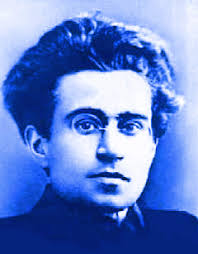 By Giuseppe Fiori
Verso, 30 pages
|

Essays on Mondragon, Marx, Gramsci
and the Green and Solidarity Economies |
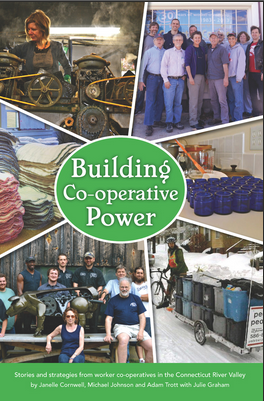
The Story of Workers Coops
in the Connecticut River
Valley Today.
Coauthors: Janelle Cornwell
(Worcester State University),
Michael Johnson (Grassroots
Economic Organizing Newsletter)
and Adam Trott (Valley Alliance
of Worker Co-operatives and
Collective Copies)
|

- Foreword by Susan Brownmiller
- Preface by Ken Wachsberger
$37.50 + $6 shipping
|
|
Discussion Documents for a Militant Movement

By Don Hamerquist
|
|
|
|
An Invitation to CCDSers and Friends...
 Upsurge Against Upsurge Against
White Supremacy
& Police Violence
We're the Committees of Correspondence for Democracy and Socialism...Do you have friends who should see this? Pass it on...Do you have a blog of your own? Others you love to read every day? Well, this is a place where you can share access to them with the rest of your comrades. Just pick your greatest hits for the week and send them to us at carld717@gmail.com!
Most of all, it's urgent that you support low-wage workers, oppose militarized police, the war on Gaza, defend voter rights, plan for 2014 races now, oppose austerity, support the 'Moral Mondays' in North Carolina, the fight for the Green New Deal, a just immigration policy and the Congressional Progressive Caucus' 'Back to Work Budget'! We're doing more than ever, and have big plans. So pay your dues, make a donation and become a sustainer. Do it Now! Check the link at the bottom... |
Darren Wilson Wasn't the First: A Short
History of Killer Cops Let Off the Hook
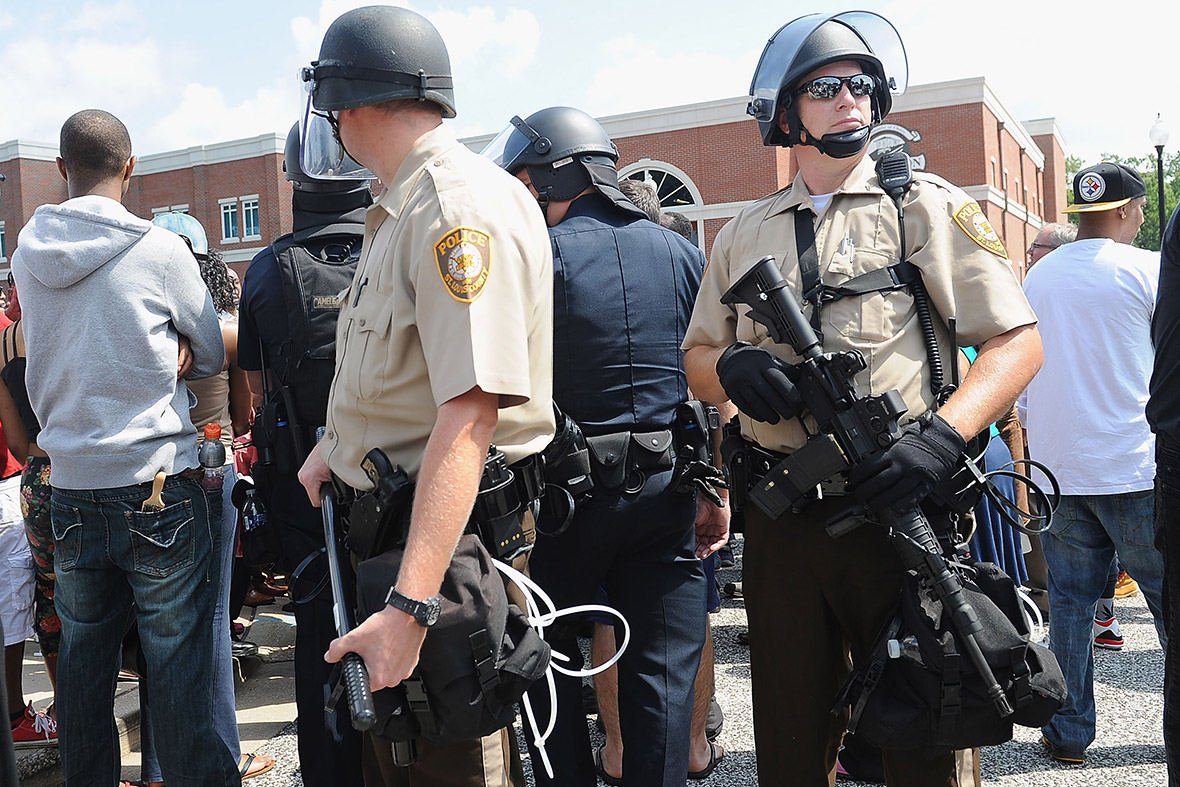
The U.S. has a long history of allowing police to walk free after vicious racist violence. By Flint Taylor
In These Times
Nov 24, 2014 - The pre-ordained failure of a biased local prosecutor to obtain an indictment against Darren Wilson should not surprise us. But the movement for justice for Michael Brown has brought widespread attention to the nationwide problem of systemic and racist police violence and highlighted the movement that has come together to battle against it.
The Ferguson grand jury's decision not to indict Ferguson police officer Darren Wilson for the killing of African-American teenager Michael Brown is heartless but unsurprising. But it is important to place the case in context with the history of police violence investigations and prosecutions in high profile cases-and the systemic and racist police brutality that continues to plague the nation. In doing so, there are lessons for the movement for justice in the Michael Brown case, as well as for those who are engaged in the broader struggle against law enforcement violence.
What follows, then, is a brief history of similar high profile cases where public outrage compelled the justice system to confront acts of racially motivated police violence-with, to say the least, less than satisfactory results.
Chicago
Over the past 45 years, Chicago has been a prime example of official indifference and cover-up when it comes to prosecuting the police for wanton brutality and torture.
On December 4, 1969, Black Panther leaders Fred Hampton and Mark Clark were slain in a police raid that implicated the Cook County State's Attorney and the FBI's Cointelpro program. A public outcry led to a Federal Civil Rights investigation. Despite finding that the raiding police fired more than 90 shots to one by the Panthers, the Grand Jury in 1970 did not indict, but rather issued a report that equally blamed the police perpetrators and the Panther victims.
Outrage at this decision led to the appointment of a Special Prosecutor who, in the face of extreme official resistance, obtained an indictment against the police and the State's Attorneys who planned and executed the raid-not for murder and attempted murder, but rather for obstruction of justice.
The case came to trial in front of a politically connected judge who dismissed the case without even requiring that the charged officials put on a defense. Again, the outrage, particularly in the African-American community was so extreme that the chief prosecutor, Edward V. Hanrahan, was voted out of office a week after the verdict was rendered in 1972.
The Jon Burge police torture scandal provides another stark example. Evidence that had been unearthed over the years demonstrated that a crew of predominately white Chicago police detectives, led by Jon Burge, tortured at least 120 African-American men from 1972 to 1991.
Cook County State's Attorney Richard M. Daley was tendered powerful evidence of this torture as early as 1982, but did not investigate or prosecute Burge and his men. Daley's office continued to use confessions tortured from the victims to send scores of them to prison-10 of whom went to death row, though they were later saved by a death penalty moratorium in 2000 and by a grant of clemency in 2003 by then-Governor George Ryan-during the next seven years.
In 1989, the local U.S. Attorneys' office declined to prosecute, as did the Department of Justice in 1996 and Cook County State's Attorney Richard Devine for the five years directly thereafter. In 2001, due to continuing public pressure, a politically connected Special Prosecutor was appointed to investigate the torture. But after a four year, $7 million investigation, he too refused to indict, instead issuing what is widely considered to be a whitewash report that absolved Daley, Devine, and numerous high Chicago police officials.
Finally, in 2008 the U.S. Attorney indicted Burge for perjury and obstruction of justice, and he was convicted in 2010, and sentenced to 4 ½ years in prison. However, the U.S. Attorney has subsequently declined to prosecute Burge's confederates for similar offenses.
New Orleans
Chicago is by no means an isolated example of how difficult it is to obtain justice for wanton police violence through the judicial system. In New Orleans, a crew of white detectives responded to the killing of a white police officer in 1980 by terrorizing the black community of Algiers, killing four innocent people and torturing numerous others by "booking and bagging" them: beating suspects with telephone books and suffocating them with bags over their heads.
Seven officers were indicted by the Department of Justice for civil rights violations arising from the torture of one of the victims and three were convicted. No officers were charged for the four killings or for the other acts of torture.
In 2005, in the wake of Hurricane Katrina, an NOPD officer fatally shot an unarmed black man named Henry Glover, then several of his fellow officers burned his body to cover-up their crime. NOPD officers also shot and killed two unarmed black men on the Danziger Bridge.
After state authorities botched their investigation, the Civil Rights Division of the Justice Department indicted the officers involved in the two cases and obtained convictions of some of the main police actors. However, the Court of Appeals for the Fifth Circuit overturned the verdict in the Glover case, and the trial judge, citing government misconduct, took the extraordinary step of granting the convicted officers a new trial in the Danziger case.
New York
In 1997, an NYPD officer sexually assaulted a Haitian-American man named Abner Louima in a precinct station bathroom by shoving a broken broomstick up his rectum. Louima's attacker was subsequently charged with federal civil rights violations, while three of his police accomplices were charged with covering up the crimes....(Click title for more)
|
|
|

Americans Remain Deeply Divided Over
Ferguson Shooting, Poll Finds
By Ariel Edwards-Levy
Progressive America Rising via Huffington Post
Nov 25, 2014 - Americans are still deeply divided over the shooting of teenager Michael Brown this summer by police officer Darren Wilson in Ferguson, Missouri, according to a HuffPost/YouGov poll taken before a grand jury decision not to indict Wilson was released Monday night.
While 28 percent said Wilson was at fault and should be punished, 23 percent said he was fully justified in the shooting of the unarmed 18-year-old, and another 30 percent said both Wilson and Brown made mistakes and it was "just a tragic accident." Another 20 percent were undecided.
Twenty-two percent had expected Wilson to be punished too harshly, while 26 percent believed he'd get off too lightly. Eighteen percent expected him to receive about the right punishment, and the remaining 34 percent were undecided.
A separate CNN poll, also conducted before the grand jury announcement, found that most wanted Wilson charged with a crime: 32 percent of Americans thought Wilson should be charged with murder, 25 percent that he should be charged with a lesser crime, and 31 percent that he should not be charged at all.
Opinions on the Ferguson incident have always been divided starkly along racial and political lines. In the latest round of HuffPost/YouGov polling, 64 percent of black Americans said Wilson was at fault, compared with just 22 percent of whites. White respondents were more than seven times as likely as blacks to say that the shooting was justified. A majority of black Americans said Wilson would be punished too leniently, with just 2 percent worrying his punishment would be too harsh.
Democrats were also three times more likely than Republicans to say Wilson was at fault, and to fear that he would be punished too leniently.
Perhaps the biggest divide, however, was on whether the shooting represented an isolated incident or part of a broader pattern in how black men are treated by the police. While Americans overall were split, 74 percent of black Americans and 57 percent of Democrats, compared with 31 percent of whites and 18 percent of Republicans, saw the shooting as part of a larger pattern.
Regardless of race or party, few Americans approved of local politicians' response to the shooting or its aftermath. Just 17 percent, including 17 percent of whites and 13 percent of blacks, said Missouri politicians' response had been adequate. The vast majority also expected some level of unrest, with 73 percent saying they believed there would be violent protests if an indictment were not returned.
The HuffPost/YouGov poll was conducted Nov. 14-17 among 1,000 U.S. adults using a sample selected from YouGov's opt-in online panel to match the demographics and other characteristics of the adult U.S. population. Factors considered include age, race, gender, education, employment, income, marital status, number of children, voter registration, time and location of Internet access, interest in politics, religion and church attendance.
|
By Terrance Heath
Campaign for America's Future
Nov 26, 2014 - This week, the only thing worse than the Ferguson grand jury's decision not to indict Darren Wilson in the death of Michael Brown, was the right-wing reaction to that decision.
Many of us dreaded what we all but knew would be a decision not to indict. Some of us were prepared to mourn. Some on the right, however, were ready to celebrate....(Click title for more)
Former New York Mayor and failed presidential candidate Rudy Giuliani just couldn't wait for the grand jury decision. On a Sunday "Meet The Press" appearance, Giuliani trotted out the tired right-wing trope about "black-on-black violence," and was thoroughly shut-down by sociologist and author Michael Eric Dyson.
The rest of wingnuttia didn't fail to disappoint.
- Giuliani even went on to say that he would prosecute Ferguson witnesses for lying, when they said Michael Brown had his hands up. [Ed Note: Out of 18 witnesses, 16 said Brown had his hand up, while 2 said he didn't]
- In a blog post on Monday morning, former Arkansas governor Mike Huckabee compared the Ferguson protesters to Bull Connor and the killers of Medgar Evers.
- American Family Association news director Fred Jackson declared that Michael Brown had a "mentality of entitlement," and "paid the consequences" for allegedly stealing cigars from a convenience store.
- Seizing upon Darren Wilson's grand jury testimony, radio host Bryan Fischer suggested that "there was a demonic presence that was operating inside Michael Brown's body."
- After the heated exchange between Giuliani and Dyson, Fischer said that banning "stop and frisk" was "like a hate crime against black citizens" - because if the majority of people stopped and frisked were black, then the people most protected are other black people....(Click title for more)
|

By Medea Benjamin
Nation of Change, Op-Ed
Nov 25, 2014 - Secretary of Defense Chuck Hagel was supposed to steer the Pentagon away from a decade of war, including bringing US troops home from Afghanistan and paving the way for a reduction in the Pentagon budget. Instead, the Obama administration has opted for remaining in Afghanistan, continuing the disastrous drone wars in Pakistan and Yemen, and dragging our nation into another round of military involvement in Iraq, as well as Syria. The ISIL crises has also been used as a justification for not cutting the Pentagon budget, as required by sequestration.
The issue facing this nation is not who replaces Hagel, but what policy decisions we want to Pentagon to implement.
Troops out of Afghanistan: The public has long soured on US military involvement in Afghanistan. President Obama's recent executive decision to keep the troops there [1] to confront the Taliban is taking us down the wrong path. After 13 years of occupation, it's time for the Afghan people to control their own nation.
No US military intervention in Iraq/Syria: The Obama administration's move to engage militarily in Iraq and Syria is also the wrong-- and dangerous-- path. US intervention, including over 6600 bombings to date, has already become a recruiting tool [2] for ISIS and has strengthened Syrian resident Assad. And with over 3,000 US troops in Iraq in dangerous missions, President Obama's promise of "no troops on the ground" is indeed hollow. ISIL must be confronted through political solutions, such as renewed talks between Assad and the Free Syrian Army, more pressure in Saudi Arabia to stop funding extremism, greater efforts by Turkey to stop the flow of recruits and weapons into Syria, and negotiated cooperation from Iran and Russia.
Stop the drone wars: President Obama's reliance on drone warfare in Pakistan has turned large portions of the population against the United States. It is the Pakistani government, not the US, that must counter the Taliban. In Yemen, the administration's drone war has put the US in the midst of what has become a bloody sectarian conflict. And US drone strikes have served to increase the number of Yemenis joining Al Qaeda [3] in the Arabian Peninsula to seek revenge.
Cut and audit Pentagon spending: With other issues clamoring for attention and funds - from healthcare and schools to infrastructure and green energy- we need to stop the massively bloated Pentagon budget. The Pentagon can't account for billions of dollars each year, literally, and is unable to pass an audit. It's time to demand that the Pentagon rein in its rampant waste, cut its oversized budget, and become accountable to the taxpayers by passing an audit [4].
The talk about resetting President Obama's security team is misplaced; we should be focusing instead on resetting his bellicose policies. Secretary Chuck Hagel's resignation should be a time for the nation to step back and reexamine its violent approach to extremism, which has led to an expansion of terrorist groups, and inflated military spending. Let's put more emphasis on the State Department and political solutions instead of continuing failed wars and starting new ones. We owe it to the youth of our nation who have never lived without war. ...(Click title for more)
|
Best Account of What Happened to Mike Brown
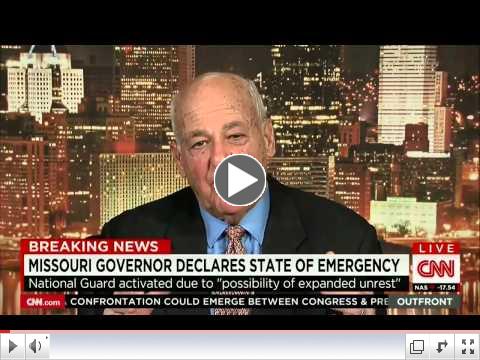 | |
Forensic Pathologist Cyril Wecht SHUTS DOWN All Nonsense in Michael Brown Case
|
|
Walmart Workers Walking Off Job Nationwide

Special to PeoplesWorld.org November 26 2014
Walmart workers-members of OUR Walmart-started striking today in cities across the country, saying they couldn't wait until Black Friday to protest the company's disregard for their rights to speak out for jobs that will let them feed their families. The strikes, which will continue through Black Friday, come days before what are expected to be the largest strikes and protests ever at 1,600 Walmart stores.
The news comes as Americans nationwide are standing up against the vast injustices created by powerful people and institutions. Last night in Washington, DC, hundreds of protestors marched through the city-including peacefully entering Walmart's new store on H Street.
"From Ferguson to Bentonville and across the country, black youth, Walmart workers, and allies are self-organizing to fight back against anti-black police violence and demand respect and dignity at work," said Rashad Robinson, executive director of Color of Change. "While it's unacceptable that we live in a world where co-workers must band together to start charity food drives to feed themselves and where black children can be left dead in the streets at the hands of the police; it's inspiring to hear so many people speak truth to power.
On Black Friday, thousands will take to the streets and to Walmart to demand better lives. In this new age of participation, the movements for economic justice and police accountability are indivisible because they both exist in the lived experiences of black people who are confronting the systems of power which have brutalized our communities."...(Click title for more)
|
|
What now? Three ways to tackle structural injustice
By Clarissa Hayward, Lynn Oldham and Laura Rosenbury
St Louis Post-Dispatch Op-Ed
Nov 24, 2014 - In the wake of the grand jury decision not to indict Darren Wilson, the single most important question St. Louis faces is: "What now?"
How will we respond to this conflict that has gripped our city for the past three months? How will we change the longstanding racial and economic inequalities that fueled it? What will we do differently, going forward?
A satisfactory answer to these questions must begin by acknowledging that injustice in St. Louis is not just about Darren Wilson and Michael Brown. It is not just about the choices and the decisions that individual St. Louisans make. It's also about the structures - the laws, the social, political, and economic institutions, the urban and suburban spaces - that inform and shape those choices.
Real change must be structural change. Specifically, St. Louis needs to tackle structural injustice head-on with institutional reforms that acknowledge our social and economic interdependence. Many in our community are already working to create more jobs, to reform our municipal court system, and to reconsider our approaches to policing, among other initiatives. All of this work is important. Yet we believe now is the time to be even bolder.
Throughout the region, concerned citizens are asking how St. Louis might be transformed with sufficient money, expertise and commitment. This year, the gross metropolitan product of the St. Louis region is $147.1 billion. We propose investing 1 percent of our region's wealth to achieve three game-changing goals.
First, we must create what some call a "solidarity economy." New investments in St. Louis will transform its economic landscape only if properly directed to those who have been consistently left at the bottom. We should invest in small, black-owned businesses, worker cooperatives that offer child care and other community services, mutual aid societies, barter clubs, and other groups developing alternative currencies. We should ensure that all members of our community have a guaranteed income that enables them to meet their basic needs....(Click title for more)
|

By Tim McDonnell
BillMoyers.com
This post first appeared at Mother Jones.
Nov 11, 2014 - Last week, an energy analyst at Deutsche Bank came to a startling conclusion: By 2016, solar power will be as cheap or cheaper than electricity from the conventional grid in every state except three. That's without any changes to existing policy. In other words, we're only a few years away from the point where, in most of the United States, there will be no economic reason not to go solar. If you care about slowing climate change or just moving toward cleaner energy, that is a huge deal.
And solar energy is already going gangbusters. In the past decade, the amount of solar power produced in the United States has leaped 139,000 percent. A number of factors are behind the boom: Cheaper panels and a raft of local and state incentives, plus a federal tax credit that shaves 30 percent off the cost of upgrading.
Still, solar is a bit player, providing less than half of 1 percent of the energy produced in the United States. But its potential is massive - it could power the entire country 100 times over.
So what's the holdup? A few obstacles: pushback from old-energy diehards, competition with other efficient energy sources, and the challenges of power storage and transmission. But with solar in the Southwest already at "grid parity" - meaning it costs the same or less as electricity from conventional sources - Wall Street is starting to see solar as a sound bet. As a recent Citigroup investment report put it, "Our viewpoint is that solar is here to stay."
Some numbers that tell the story:...(Click title for more)
|
 By Harry Targ By Harry Targ
Diary of a Heartland Radical
Fighting for Peace: Veterans and Military Families in the Anti-Iraq War Movement
By Lisa Leitz.
University of Minnesota Press, 2014
Nov 10, 2014 - One of the biggest scholarly secrets about social movements since the Vietnam War is the magnitude and vibrancy of the antiwar movement inside the military.
"Sir! No Sir!" a 2005 film documented the militant anti-war movement that spread throughout the United States military in the late 1960s and early 1970s. The movement included acts of civil disobedience at military bases, networks of coffee houses near military installations, antiwar newspapers targeted to military readers, and a spreading network of antiwar families and loved-ones as the movement percolated throughout U.S. society.
Fighting for Peace by Lisa Leitz, Assistant Professor of Sociology and Director of Project Pericles at Hendrix College, fast-forwards in a rigorous way to the study of the military anti-war movement from 2005 to 2012; involving veterans of wars in Iraq and Afghanistan, loved-ones of those serving, extended families, and networks of military families. The volume uses a variety of methods--questionnaires, extended interviews, archival materials, and ethnographies of organizations and individual military anti-war activists and their families. While surveying anti-war movements against the wars in Iraq and Afghanistan, Professor Leitz concentrates on the participation, vision, rhetoric, activism, tactics, and contradictory "identities" of five organizations: Veterans for Peace, Military Families Speak Out, Iraq Veterans Against the War, Gold Star Families for Peace, and Gold Star Families Speak Out.
The narrative begins with the formation of some of these groups and growing tensions between them arising after the dramatic anti-war protests initiated by Cindy Sheehan, mother of a son who was killed in Iraq. The site of these demonstrations in Crawford, Texas was adjacent to the summer residence of President George Walker Bush. For Leitz, the camp site that was created and named after Sheehan's deceased son, Camp Casey was "a watershed moment for this movement." In addition to inspiring the anti-war movement generally "...the vigil brought together veterans of the current wars, veterans of past wars, families of dead military service members, and families of current service members who were all critical of the Iraq War" ...(Click title for more)
|
|
A superb performance by Bradley Cooper anchors Clint Eastwood's harrowing and thoughtful dramatization of the life of Navy SEAL Chris Kyle.
By Justin Chang
Variety
A skillful, straightforward combat picture gradually develops into something more complex and ruminative in Clint Eastwood's "American Sniper," an account of the Iraq War as observed through the rifle sights of Navy SEAL Chris Kyle, whose four tours of duty cemented his standing as the deadliest marksman in U.S. military history.
Hard-wiring the viewer into Kyle's battle-scarred psyche thanks to an excellent performance from a bulked-up Bradley Cooper, this harrowing and intimate character study offers fairly blunt insights into the physical and psychological toll exacted on the front lines, yet strikes even its familiar notes with a sobering clarity that finds the 84-year-old filmmaker in very fine form.
Depressingly relevant in the wake of recent headlines, Warners' Dec. 25 release should drum up enough grown-up audience interest to work as a serious-minded alternative to more typical holiday fare, and looks to extend its critical and commercial reach well into next year.
Although Steven Spielberg was set to direct before exiting the project last summer (just a few months after Kyle's death in Texas at the age of 38), "American Sniper" turns out to be very much in Eastwood's wheelhouse, emerging as arguably the director's strongest, most sustained effort in the eight years since his WWII double-header of "Flags of Our Fathers" and "Letters From Iwo Jima." As was clear in those films and this one, few directors share Eastwood's confidence with large-scale action, much less his inclination to investigate the brutality of what he shows us - to acknowledge both the pointlessness and the necessity of violence while searching for more honest, ambiguous definitions of heroism than those to which we're accustomed.
In these respects and more, Kyle - who earned the nickname "Legend" from his fellow troops, achieved a staggering record of 160 confirmed kills, and became one of the most coveted targets of the Iraqi insurgency - makes for a uniquely fascinating and ultimately tragic case study....(Click title for more)
|
|
Keep up with the Moral Mondays with a Red Resolution...
Become a CCDS member today!
 The time is long past for 'Lone Rangers'. Being a socialist by your self is no fun and doesn't help much. Join CCDS today--$36 regular, $48 household and $18 youth. The time is long past for 'Lone Rangers'. Being a socialist by your self is no fun and doesn't help much. Join CCDS today--$36 regular, $48 household and $18 youth.
Better yet, beome a sustainer at $20 per month, and we'll send you a copy of Jack O'Dell's new book, 'Climbing Jacobs Ladder,' drawing on the lessons of the movement in the South in the 1950s and 1960s.
Solidarity, Carl Davidson, CCDS
|
|
|